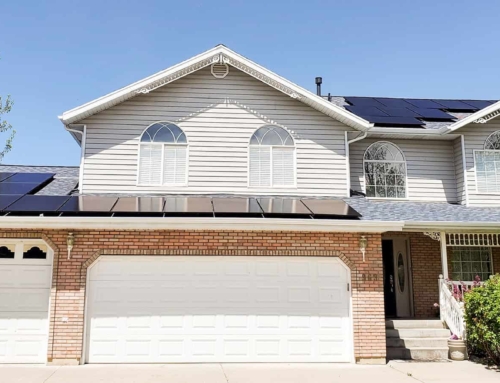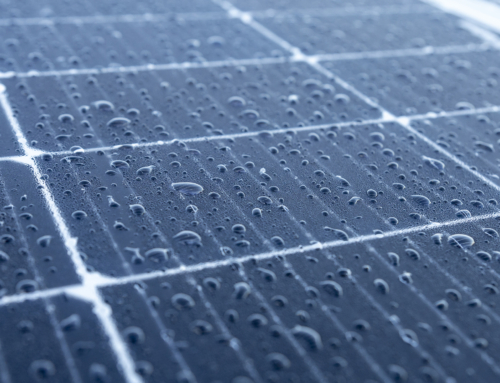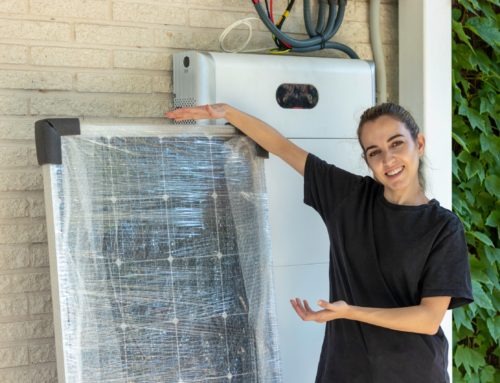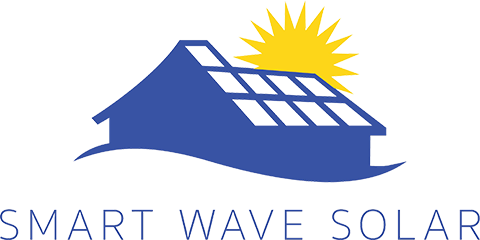After deciding to power your home or business with solar energy, the next step is knowing the solar panel size you need. Solar panels come in various sizes and weights, and their dimension can vary depending on several factors. Here’s what you need to know.
How Big Are Solar Panels?
When selecting the appropriate solar panel size for your home, it is helpful to learn about the standard size available on the market. Each panel comprises of solar cells measuring 6″ x 6″ inches. The number of solar cells is 60-cell panels, which can weigh around 40 pounds, and 72-cell panels, which usually weigh about 50 pounds. Residential solar systems typically use 60-cell panels, while commercial systems use 72-cell panels.
Residential Solar Panels
For effective space utilization, residential solar panels have a compact design. 60-cell panels are typically arranged into 6 columns and 10 rows. The exact solar panel dimensions may vary depending on the manufacturer, but they are usually around 65″ to 66″ tall and 39″ to 40″ wide. As a result, they can cover an area of around 18 square feet. Solar installation companies will measure your roof’s area to determine the number of panels that can be installed safely.
Solar companies are continuously seeking ways to boost efficiency. Some models now use a half-cell design that features solar cells that are 50% smaller than usual. Although twice the number of solar cells can fit in a panel, they have the same dimensions as traditional panels.
Commercial Solar Panels
The 72-cell solar panels used in commercial buildings are arranged into twelve rows and six columns, making them taller than residential solar systems. They have the same width of 39″ to 40″, but their height can range from 78″ to 79″. Each panel covers about 22 square feet.
Aside from their height difference and number of solar cells, commercial solar systems can also differ from residential systems in terms of wiring and design. For example, their inverters are typically larger, and panels are connected in a much longer series.
How Does Your Roof Affect Solar Panel Size?
Your roof’s usable area, alongside other factors (energy usage, amount of sunlight, etc.), will determine the solar panel sizes and wattage your home needs.
If your roof is small or unusually sloped, your solar installation company may recommend using smaller high-efficiency solar panels to provide your required energy output. However, if you have larger usable roof space, bigger solar panels can help you save money (based on cost per panel) while still providing the power you need. Residential solar systems may require panels to lie flush against roof shingles, which requires a careful installation process.
What Are the Factors That Affect Solar Panel Size?
Solar Panel Material
Solar panels can come in monocrystalline, polycrystalline, and thin film variants. Among the three options, monocrystalline takes up the least space and is considered the most efficient.
Wattage
Solar systems comprise interconnected solar panels that provide power in watts. Generally, the more wattage solar systems produce, the more solar cells are needed, increasing the overall surface area required for your solar panels.
Manufacturer Differences
Depending on the brand, slight variations in dimensions and weight can be observed across solar panels.
Electricity Output Required
Your solar system should match the required electricity output needed for your home. Higher energy usage may require more solar panels.
US homes have an average annual energy consumption of 10,715 kWh or about 893 kWh per month. When determining your home’s needs, account for possible fluctuations due to weather changes or the use of different appliances depending on the season.
Switch to Solar with Smart Wave Solar
You can save money and preserve the environment by switching to solar energy. If you’re ready to go solar but don’t know where to begin, turn to Smart Wave Solar! We will work with you to determine the panel size and what solar system suits your home. Reach out today to request an estimate and learn more about our solar solutions!





